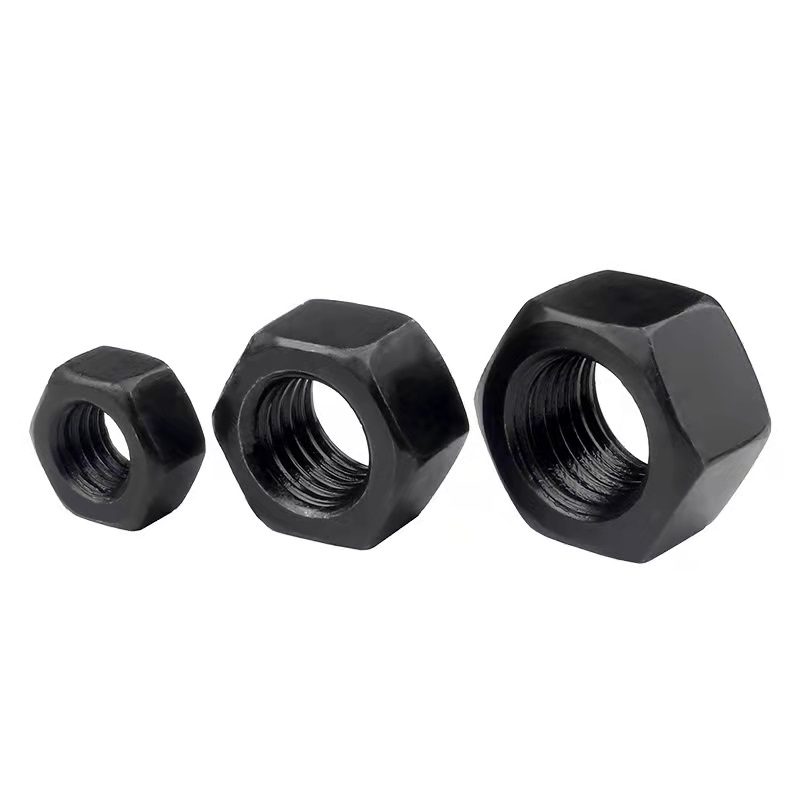Quality OEM Screws Designed for Sheet Metal Applications and Aluminum Fabrication Solutions
Aug . 09, 2024 19:45 Back to list
Quality OEM Screws Designed for Sheet Metal Applications and Aluminum Fabrication Solutions
Understanding OEM Screws for Aluminum Sheet Metal Applications
In the realm of manufacturing and construction, the choice of fasteners plays a critical role in ensuring both the integrity and durability of a product. Specifically, when it comes to aluminum sheet metal, Original Equipment Manufacturer (OEM) screws are essential components designed to meet the specific needs of various applications. This article explores OEM screws for aluminum sheet metal, their properties, advantages, and best practices for selection and use.
What are OEM Screws?
OEM screws refer to fasteners that are specifically manufactured to meet the exact specifications outlined by a manufacturer or supplier for their unique products. These screws often come with precise tolerances and dimensions, ensuring a perfect fit and optimal performance in their designated applications. For aluminum sheet metal, which is commonly used in industries such as automotive, aerospace, and construction, the selection of the right screws is paramount.
The Importance of Material Compatibility
Aluminum is a lightweight, corrosion-resistant material that is widely used in applications where weight savings and resistance to the elements are important. However, aluminum is also susceptible to galvanic corrosion, especially when in contact with dissimilar metals. For this reason, OEM screws designed specifically for aluminum applications are typically made of materials such as stainless steel, brass, or aluminum itself. These materials not only provide the necessary strength for fastening but also minimize the risk of corrosion.
Properties of OEM Screws for Aluminum
1. Corrosion Resistance As previously mentioned, the choice of material is crucial in preventing corrosion, particularly in outdoor or humid environments. Fasteners should ideally have protective coatings, such as anodizing or galvanization, to enhance longevity.
2. Strength and Durability OEM screws must meet certain mechanical standards to ensure that they can withstand the stresses of the application. The tensile strength and shear strength of the screws are vital for maintaining the integrity of joints.
oem screws for aluminum sheet metal

3. Easy Installation Many OEM screws for aluminum sheet metal are designed for easy installation, often featuring self-tapping threads that eliminate the need for pre-drilling. This not only speeds up the assembly process but also reduces the risk of damaging the aluminum during installation.
4. Precision Fit OEM screws are manufactured to exact specifications, ensuring that they fit perfectly within the pre-drilled holes of aluminum sheet metal. This precision minimizes stress concentrations and enhances the overall strength of the assembly.
Advantages of Using OEM Screws
1. Tailored Solutions By choosing OEM screws, manufacturers can ensure that the fasteners are tailored to the specific requirements of their products. This leads to improved performance, reduced failures, and enhanced safety.
2. Consistency and Reliability OEM screws provide consistency in quality and performance, making it easier for manufacturers to predict outcomes and reduce variability in their production processes.
3. Cost-Effectiveness While OEM screws might have a higher upfront cost compared to generic alternatives, their ability to enhance the longevity and reliability of products can lead to significant cost savings over time. Reduced maintenance and failure rates contribute to overall efficiency.
Best Practices for Selection and Use
When selecting OEM screws for aluminum sheet metal, it’s essential to consider factors such as the specific application, environmental conditions, load requirements, and compatibility with other materials. Consulting with manufacturers or experts in fastening solutions can provide valuable insights to ensure that the right fasteners are chosen.
In conclusion, OEM screws are indispensable for applications involving aluminum sheet metal. Their unique properties, tailored design, and the advantages they offer make them a smart choice for manufacturers aiming to produce high-quality, durable products. By understanding the critical factors surrounding the selection and use of these screws, manufacturers can significantly enhance the performance and longevity of their assemblies.
Latest news
-
Top Metric Wood Screw Companies – Reliable Manufacturer & Supplier
NewsJul.25,2025
-
Reliable Axle Nuts Supplier - Quality Manufacturing & Export Services
NewsJul.24,2025
-
Top Wire Bolts Suppliers & Exporters - Quality Fasteners Factory
NewsJul.23,2025
-
Reliable Wire Bolts Company & Supplier for Construction Solutions
NewsJul.22,2025
-
Premium Spike Wheel Nuts Supplier | Durable Quality
NewsJul.21,2025
-
High Strength Black & Galvanized Hex Bolts DIN933/931 GB5782/5783
NewsJul.20,2025
